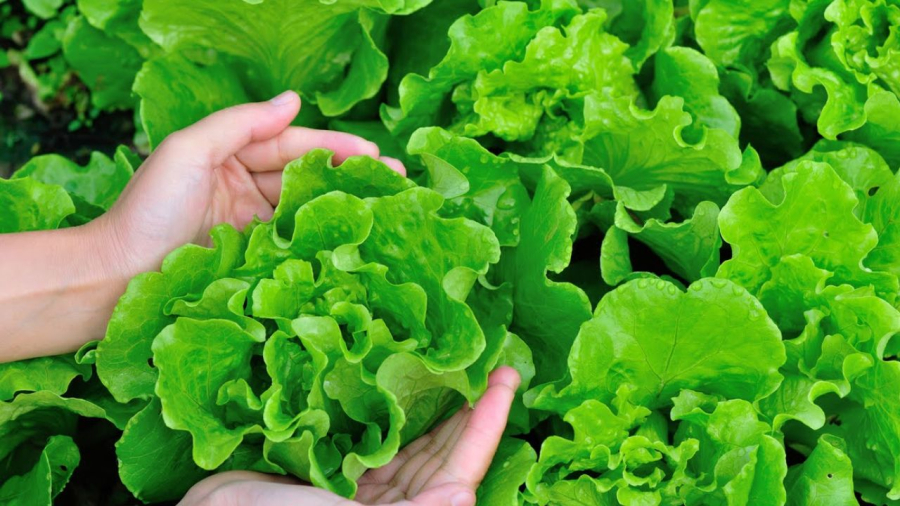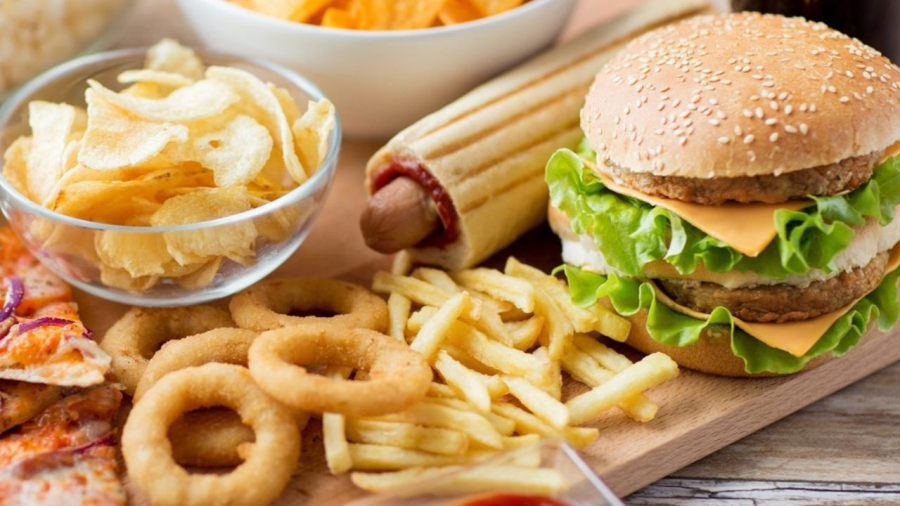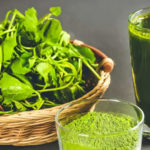Why does food craving relate to diseases?
People often say that when the body lacks a certain nutrient, it craves for that nutrient. Many doctors agree with this. When our bodies are deficient in something, they can send signals to consume foods that are rich in that nutrient or to consume foods that are rich in a different nutrient to address the issues that the body is facing.
Let’s take a look at the signs of food cravings and their relation to different health issues:

Craving for spinach could be related to breast cancer
When someone has breast cancer, they often lack Sulforaphane, which is abundant in spinach. When the body sends signals to eat a lot of spinach, it could be a sign that there is an abnormality in the breasts. Of course, it’s important to differentiate between craving and excessive craving. When there is an unusual excessive craving, the signs can be more obvious. In addition to craving this particular food, if there are other symptoms such as a lump in the breast, changes in the color of the breast skin, or discharge from the breast, it could be related to high breast cancer risk, so it’s important to seek medical attention early.

Craving for salt could be related to adrenal insufficiency
Adrenal insufficiency (also called Addison’s disease) occurs when the adrenal glands do not produce enough hormones (glucocorticoids, aldosterone, androgens). When the adrenal glands are healthy and functioning normally, they release aldosterone to retain sodium (a source of salt) in order to maintain body functions.
If for some reason the adrenal glands are insufficient and not functioning properly, aldosterone hormone secretion decreases, resulting in excess elimination of salt from the body, causing the body to crave for salt. Therefore, if you suddenly have a craving for salty foods, it’s advisable to check for adrenal insufficiency. Especially if it’s accompanied by symptoms such as menstrual disorders, fatigue, apathy, stress, unexplained weight loss, it’s important to seek medical attention early as the risk of disease is high.
Craving for starch and sugar excessively may indicate diabetes
Starch and sugar are important nutrients, but for people with diabetes, they can cause a rapid increase in blood sugar levels. If you have excessive cravings for starchy and sugary foods such as cakes, pastries, cookies, rice, etc., you should consider whether you have other symptoms of diabetes. Diabetic patients lack insulin, so they cannot regulate blood sugar levels, which leads to cravings for sweet foods. If accompanied by symptoms such as excessive thirst, frequent urination, dry lips, dark skin on the neck, or fatigue, it’s important to check your health.
Craving for sour foods may indicate weak immune system
When you crave sour fruits such as lemons, oranges, tangerines, star fruits, or pineapples, it may be a sign that your immune system is weakened and you’re feeling tired. This is because sour fruits contain a high amount of vitamin C, which is related to the immune system’s ability to function. When the immune system is compromised, it sends signals to stimulate the consumption of these substances. If you feel tired and have been getting sick recently, it’s important to improve your immune system by maintaining a healthy diet, getting proper rest, and exercising.

Craving for red-colored foods and ice may indicate iron deficiency
The color of foods is related to their components. For example, red foods often contain a lot of iron. When the body lacks iron and is anemic, it often craves for iron-rich foods. When there is an iron deficiency, you may also crave for ice and have no fear of coldness. You may chew on ice cubes, especially in children. The reason is that being anemic due to iron deficiency leads to tongue pain and inflammation. Chewing ice cubes provides a numbing sensation, which helps to alleviate the discomfort, resulting in cravings.
Craving for chocolate may indicate low blood pressure or blood sugar levels
Dark chocolate, in particular, can help stabilize blood sugar levels quickly. So when you have low blood pressure, you often have a craving for sweets. If accompanied by symptoms such as trembling, irritability during meals, it’s advisable to check your blood sugar levels. For women, craving for chocolate is also a sign of stress and premenstrual syndrome. During this period, the serotonin neurotransmitter transmission in the brain is low, causing restlessness. Eating chocolate increases serotonin levels in the brain, making people feel more cheerful. Therefore, the body intuitively sends signals to urge them to seek chocolate.
Craving for milk may indicate vitamin deficiency
When you lack vitamins, your body stimulates the intake of this food. Milk contains many vitamins and minerals. Review your diet. If you crave for milk and also have symptoms such as feeling weak, fatigue, dry skin, or cracked and peeling lips, it may be because your body is deficient in vitamins.

Craving for everything may indicate Bulimia
Bulimia is a psychological disorder that causes uncontrollable food cravings. You need to see a psychologist as there may be a trauma affecting the neurotransmitter serotonin, leading to eating disorders. Life events that you have experienced can also affect your personality or turn you into a compulsive person… So if you suddenly find yourself eating excessively or if someone is astonished and judgmental about your eating habits, combined with weight gain and discouragement, it’s best to seek a psychiatrist’s help.
Craving for non-food items may indicate Pica
Pregnant women sometimes crave for strange foods. However, if you’re not pregnant and crave for everything, even non-food items, and you eat until you’re full but still crave, it may be a sign of Pica. If it’s not out of curiosity, people who suddenly develop a “habit” of eating inedible objects may be experiencing severe zinc deficiency or have recently experienced a brain trauma. Zinc affects the sense of taste, so when you lack zinc, you may develop strange eating preferences. If you or someone you know suddenly has a peculiar eating preference, it’s best to get checked for nutritional deficiencies and brain function.



































